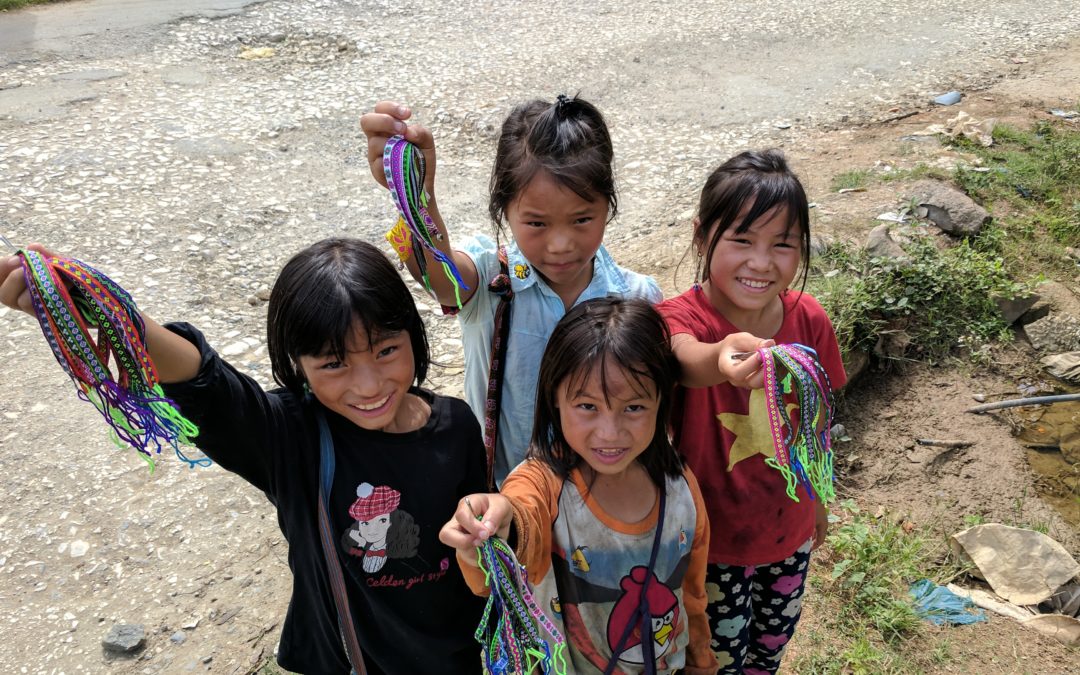Officially, the world calls Vietnam a communist country and the United States a capitalist country. In reality, communist Vietnam has more economic freedom than capitalist America.
When discussing important, sometimes controversial topics like this, we first need to define the words we’re using. Mostly because some people don’t actually understand what these words mean.
What is communism?
Karl Marx was the founder of communism. What were the characteristics of his creation? Marx spelled out his philosophy in his book The Communist Manifesto. You might call them “The 10 Commandments of Communism”. As we list the 10 characteristics, some readers might be surprised to know that the United States government has implemented each of those 10 planks to one extent or another (examples of this implementation are in parenthesis below).
1. Abolition of property in land and application of all rents of land to public purposes (e.g. property taxes).
2. A heavy progressive or graduated income tax (e.g. federal income tax).
3. Abolition of all rights of inheritance (e.g. the death/inheritance tax).
4. Confiscation of the property of emigrants and rebels (e.g. civil forfeiture; the 1997 Crime/Terrorist bill, which legalizes property confiscation from those who speak out against the government).
5. Centralization of credit in the hands of the state, by means of a national bank with state capital and an exclusive monopoly (e.g. the Federal Reserve System).
6. Centralization of the means of communications and transport in the hands of the state (e.g. FAA, FCC, ICC, and almost every single road in the United States. Also, the NSA has backdoor access to all major communications companies).
7. Extension of factories and instruments of production owned by the state; the bringing into cultivation of waste lands, and the improvement of the soil generally in accordance with a common plan. (e.g. The Departments of Agriculture; Commerce; Labor; Interior, EPA; the Bureaus of Land Management; Reclamation; Mines; the National Park Service; and the IRS all control business through corporate regulations).
8. Equal obligation to work. Establishment of industrial armies, especially for agriculture (e.g. increases in the national debt, currency inflation, and taxes have directly led to the need for a “dual family income”).
9. Combination of agriculture with manufacturing industries; gradual abolition of distinction between town and country (e.g. Agenda 21).
10. Free education of all children in government schools. Abolition of child factory labor in its present form. Combination of education with industrial production (e.g. the Department of Education and the government school system in America have been indoctrinating children for decades).
What is capitalism?
If America has slowly been implementing the Communist Manifesto, what is the definition of “capitalism”? That’s a much easier definition than “communism”, according to Merriam-Webster Dictionary:
an economic system characterized by private or corporate ownership of capital goods, by investments that are determined by private decision, and by prices, production, and the distribution of goods that are determined mainly by competition in a free market.
Most Americans honestly believe that they own their cars, homes, businesses, and more. However, the American government can always force you to do, or not do, something with your property. If you disobey any of their commands, they can repossess (i.e. “confiscate”, “impound”) their property. Considering the above definition of capitalism, would you truly describe America as “capitalist”?
Above, I’ve noted examples of communism in America. Now, we’re about to see why communist Vietnam has more economic freedom than capitalist America.
The peaceful government of Vietnam
When looking through all of the photos below, the one question to ask yourself is this: Would the government allow these non-violent entrepreneurs to operate in the United States; or would the government extort money from them (i.e. “fine”), threaten them with violence, and/or initiate violence against these peaceful entrepreneurs?
Let’s get started (click on any photo to enlarge it).
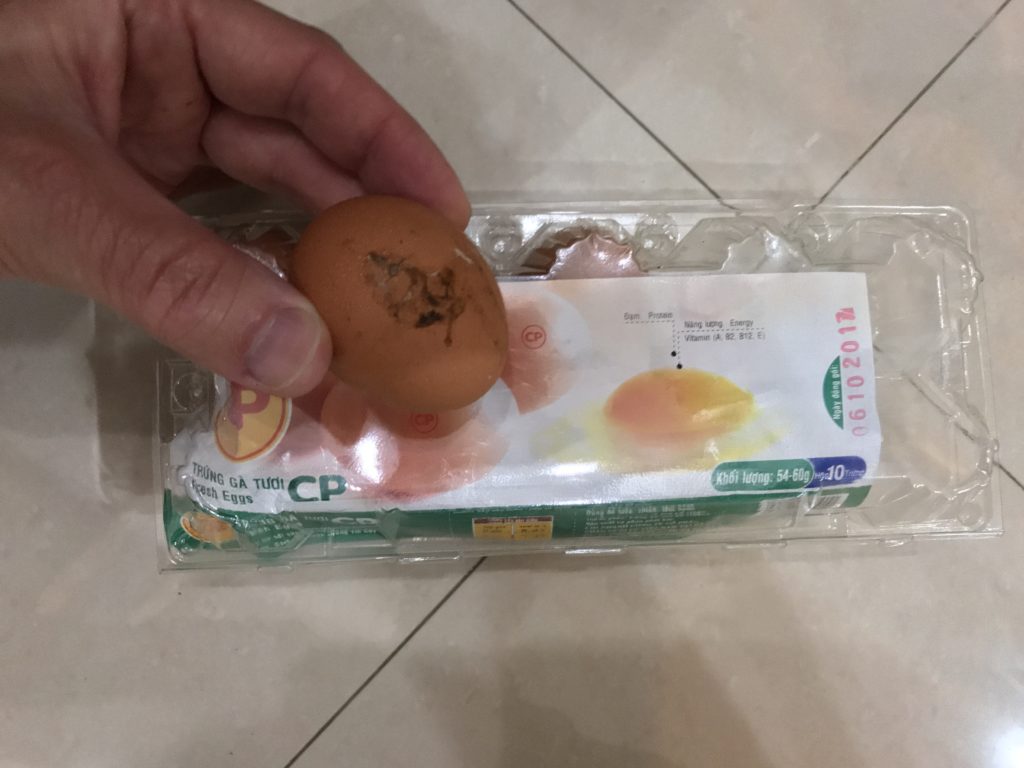
How fresh are the eggs at the grocery store in Vietnam? Some of them still have dirt on them from the farm. Or is that chicken poop? No matter. That shell, along with whatever that stuff is on the outside, are both going in the trash after I crack it open.

These are fishing boats off the coast of Danang. Do you think some busy-body bureaucrat checks every bit of seafood they pull out of the water? Not a chance.

I’m sure you spotted it right away: that glass cleaner on the shelf is probably completely unregulated and shouldn’t be allowed in a respectable, government licensed business! Also, depending on where you are in the US, those four semi-automatic rifles might not be able to be displayed on the wall.
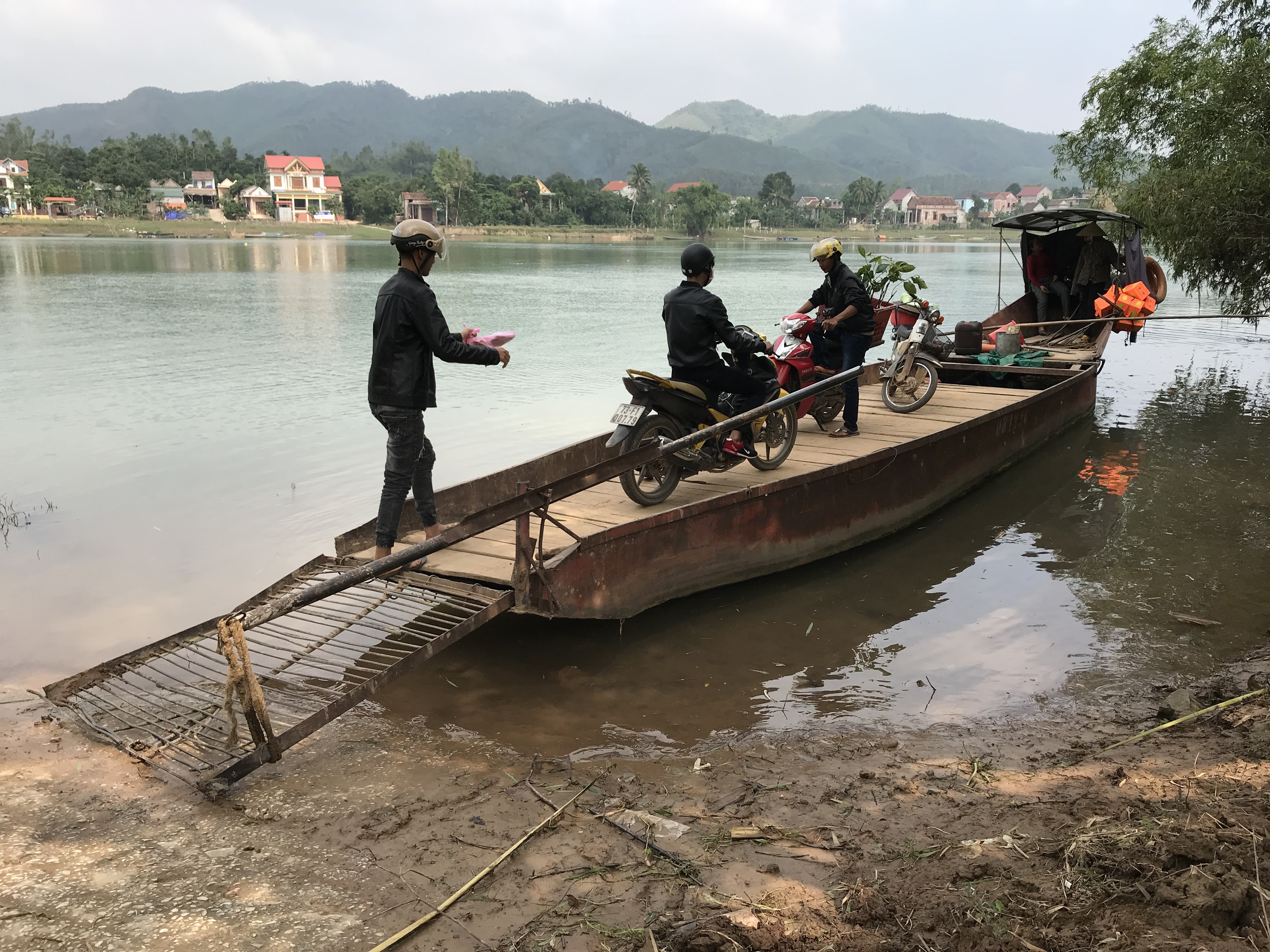
Rather than driving a long distance to the nearest bridge, people hire a nice old woman to take them across the river (she’s in the back of the boat, in the shadow). How many licenses, fees, and taxes do you think would be forced on a business in America before they’d be allowed to do what this kind woman does in Vietnam?

Chickens, ducks, geese, pigs, goats, and yes, even cows roam the streets of Vietnam pretty regularly. Some farmer would have to be tased in America for such violations!
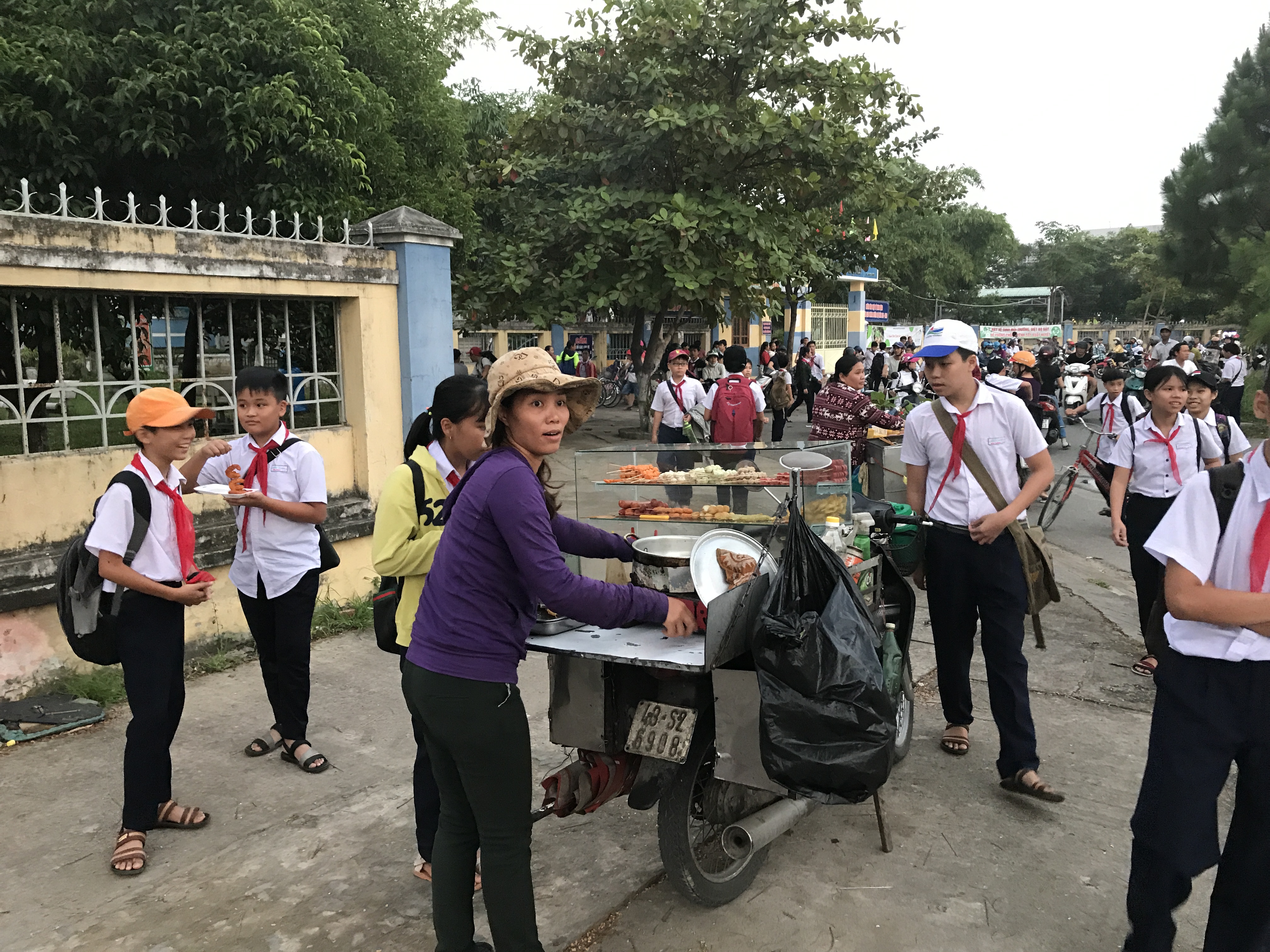
For a moment, let’s forget that this woman is cooking on the back of her motorbike. Even if she had a licensed, regulated, taxed food truck, do you think the American government would allow her to sell unhealthy, fried food outside of this school when the kids got out of class? Side note: her street food tasted so good, I went back for seconds!
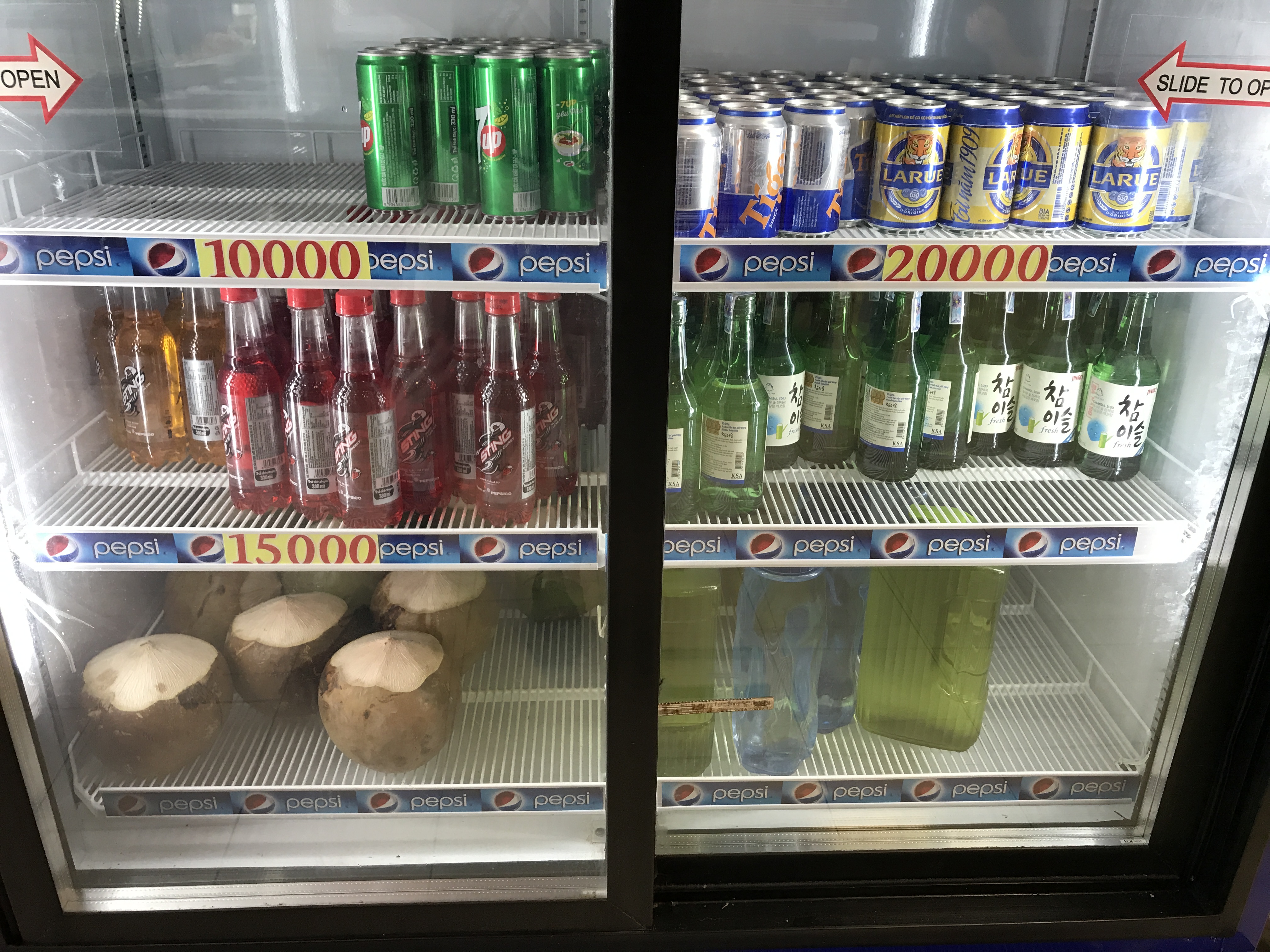
At first glance it looks like a normal refrigerator at a restaurant. Then, you see the fresh coconuts. Sometimes Vietnamese people climb trees to get them. Sometimes they wait for them to fall to the ground. Then, they’ll sell them. How many licenses would a business in America have to apply for to sell fresh coconut water?
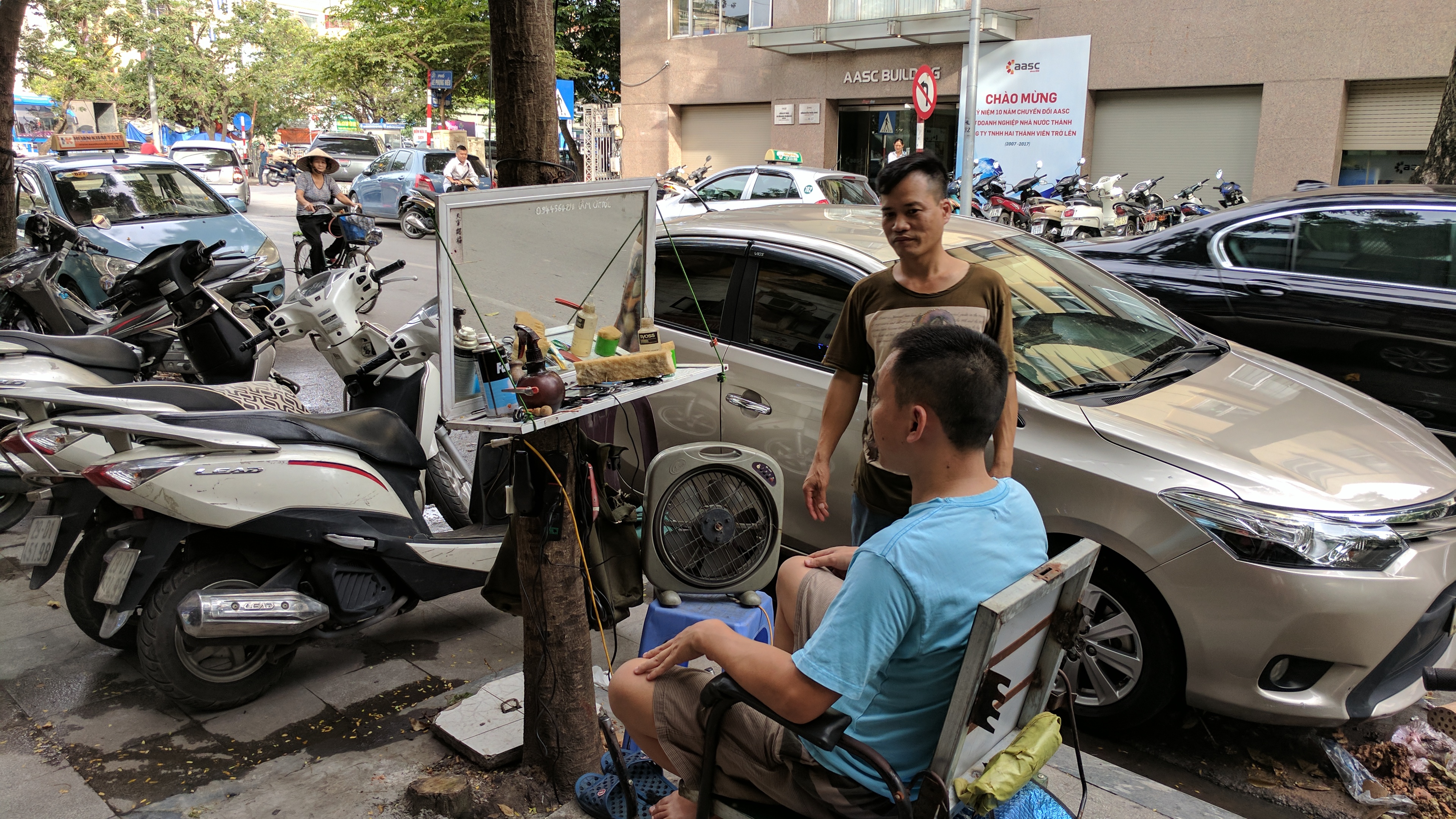
There is simply no place in the entire United States that would allow a barber to set up his business on the sidewalk. In fact, almost every state and city in the US require aspiring barbers to pay for expensive barber school and annual licensing.

In most places in the US, if you wanted to set up a school in your house to teach people a foreign language, there’d be extensive taxes, licensing, regulations, and you may even be required to send occasional reports to the State. Since Vietnam has more economic freedom than the United States, none of these requirements exist.
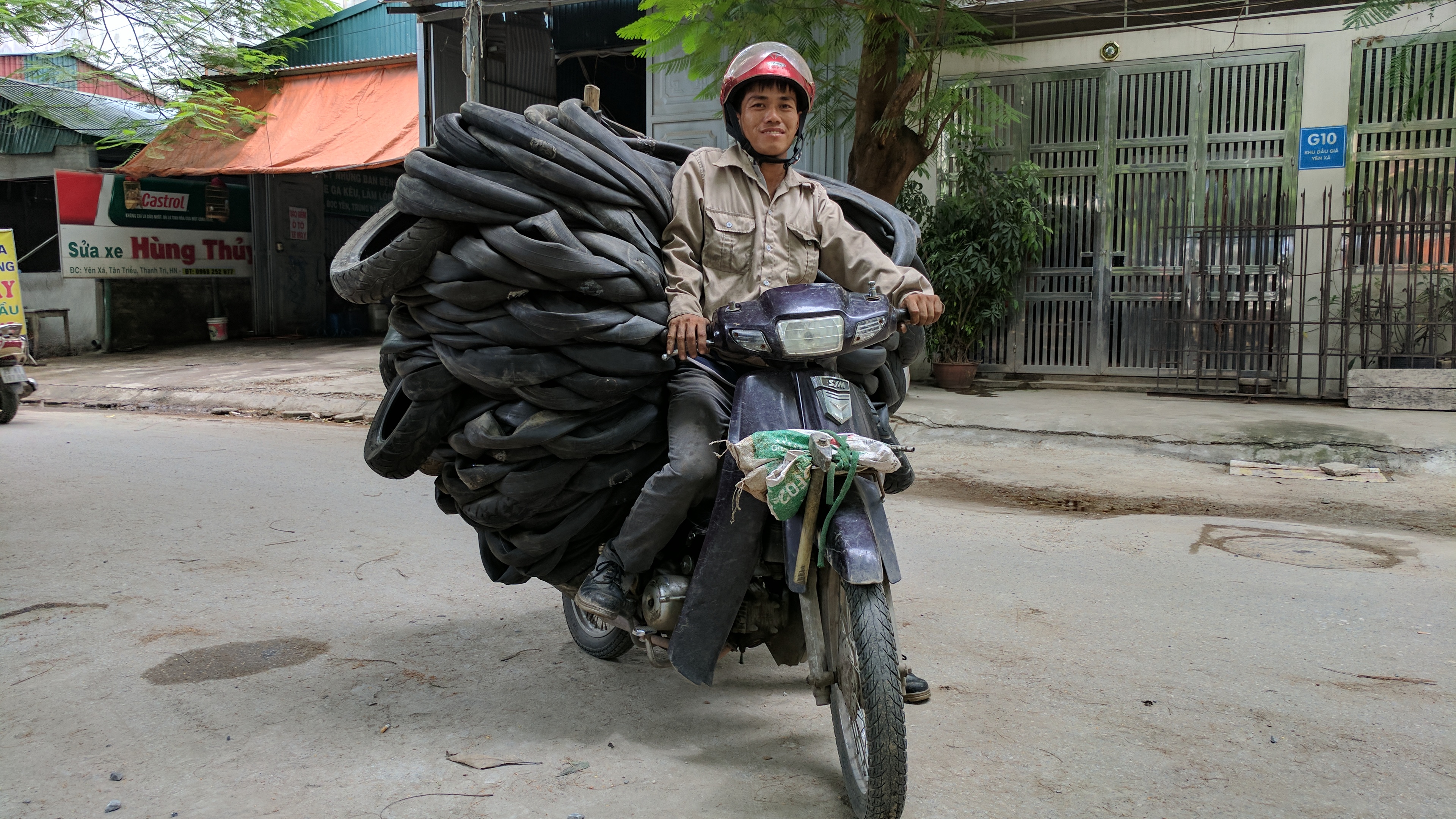
Let’s be honest: In America, if a cop saw somebody driving this many tires around, they’d almost certainly pull them over, find a way to give them a ticket, repossess (i.e. “impound”) the motorbike and tires, and tell the poor delivery driver to find his own way home.
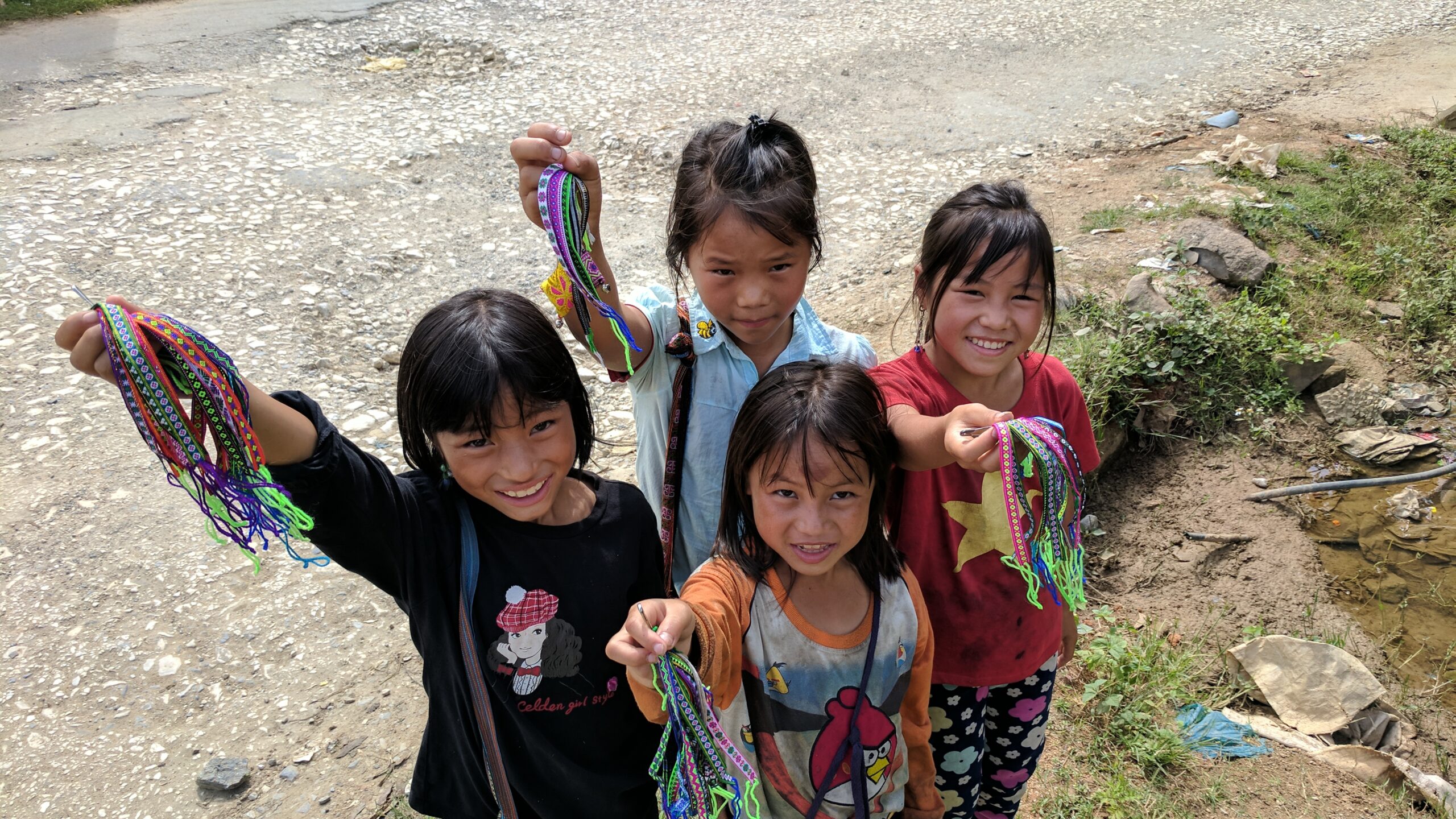
Yes, I saw the signs that said “don’t buy anything from the peddlers on the street”. Whenever the peddlers asked me to buy something, I’d said “no”. Then, I met these four little girls. I felt weak. They sensed my weakness and exploited it. I told them I’d buy one bracelet from each of them if they’d let me take a picture of them. Thankfully, they agreed! Naturally, any street peddler would be arrested in America. Or, as in the case of Eric Garner in New York City, the police could legally execute you on the spot. Vietnam, on the other hand, will simply put up a sign that asks people not to buy from the peddlers. Which country is more totalitarian? Which has more human rights?
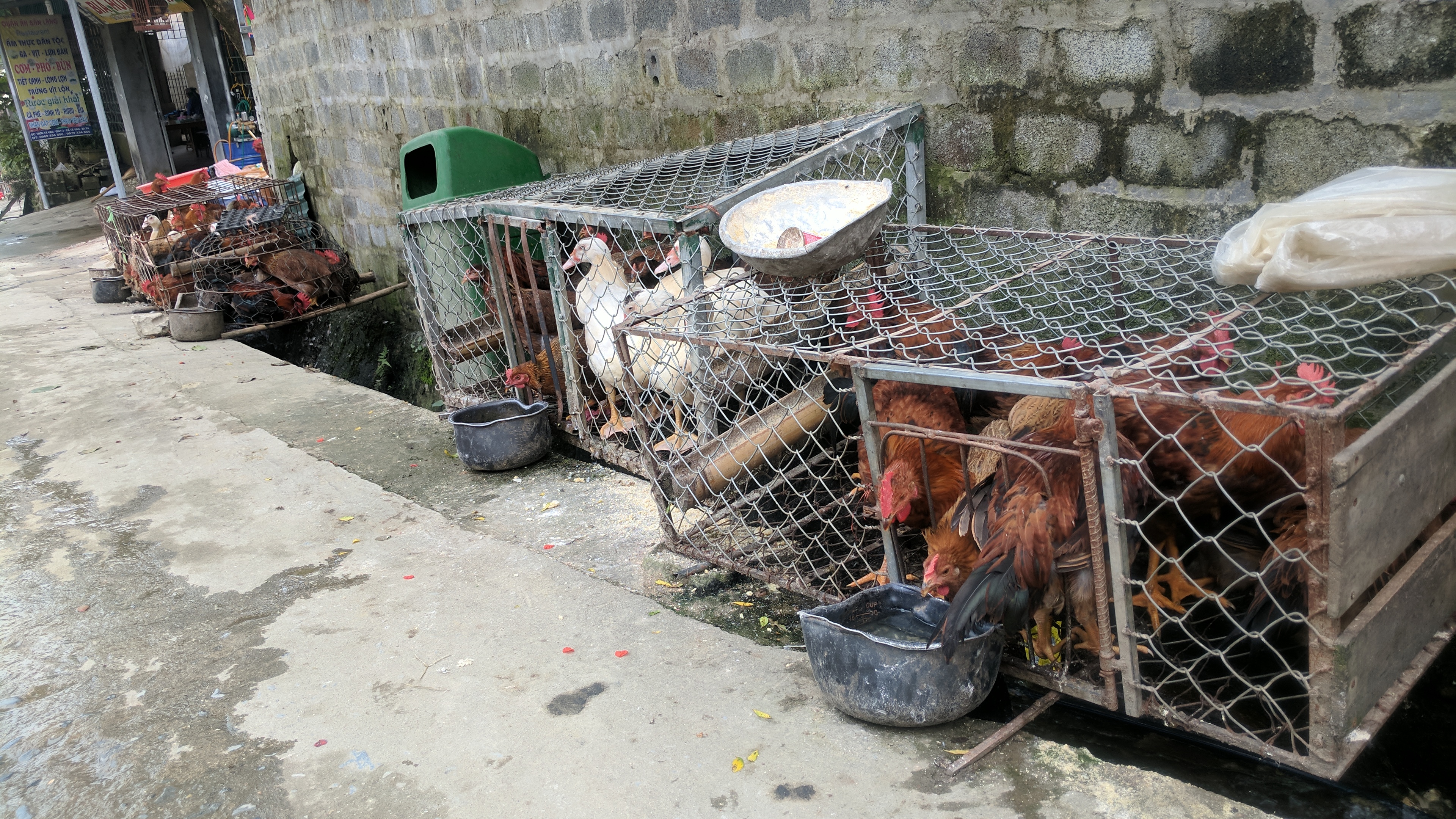
In Vietnam, you often know exactly where your food comes from. Sometimes, it’s right outside the restaurant. How many regulations and laws do you think there are against this sort of thing in America?
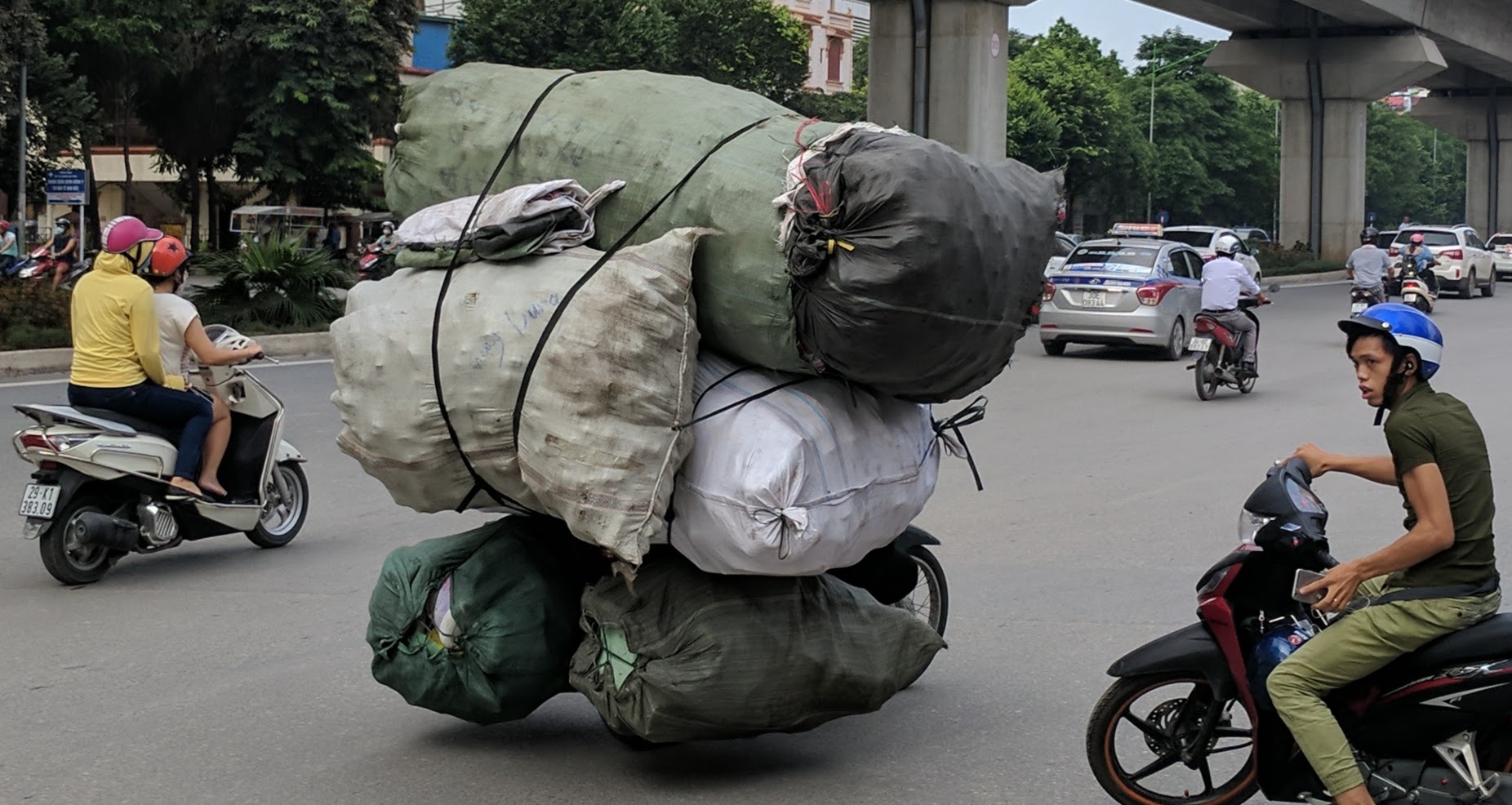
During my 14 months in Vietnam, I saw a lot of very talented drivers delivering large and awkward loads. This is definitely one of the more impressive. If somebody were to try this in America, the first cop they’d pass would pull them over immediately, without question. Whereas in Vietnam, this sort of thing is allowed to happen all the time, every single day.
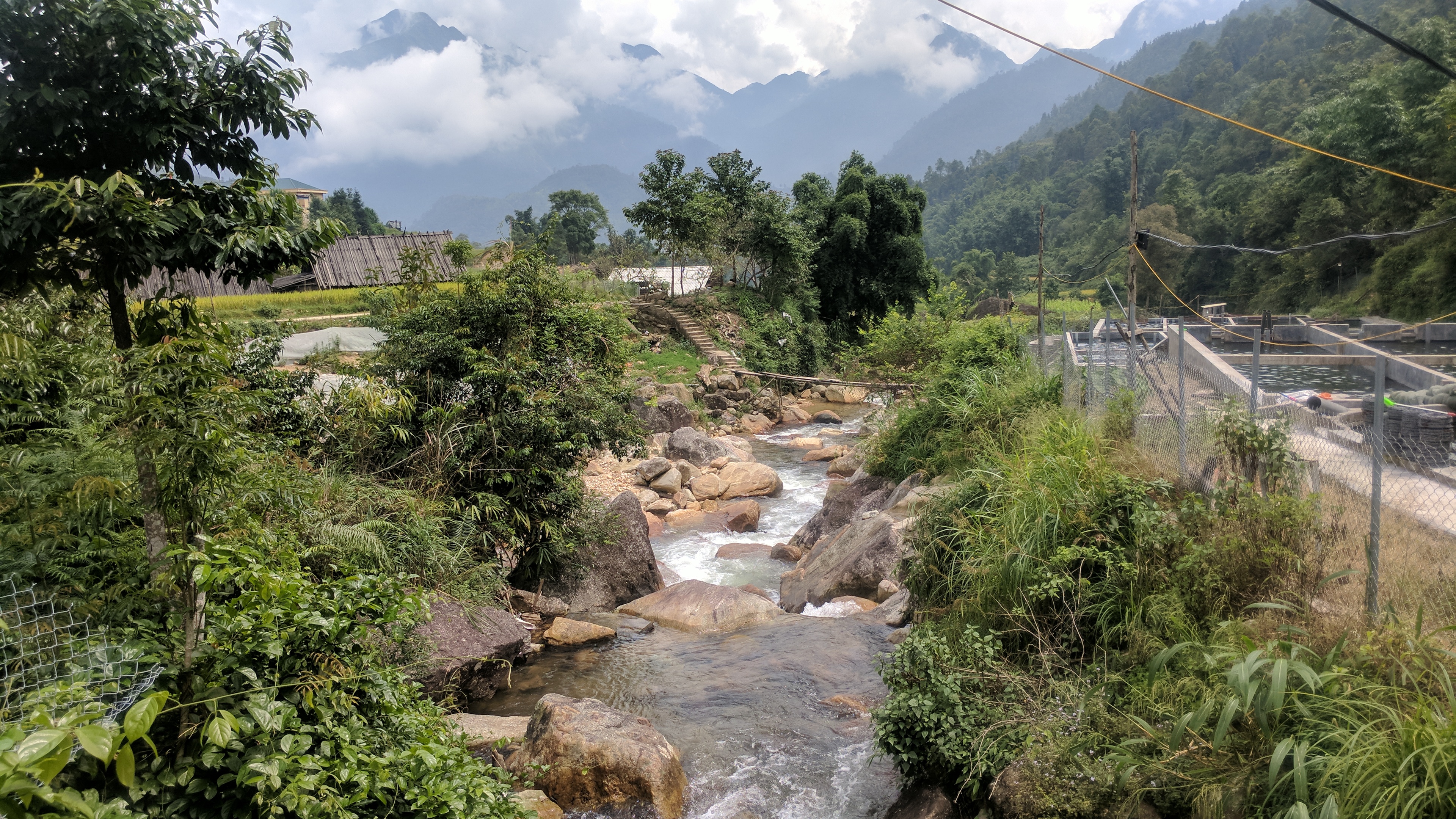
Words cannot explain the fond memories that accompany this photo. I’ll have to tell you the full story someday.
In the middle, you can see the river. On the right, the fish farm, which they built in three months. They divert the water from the river into the first set of three fish tanks (you can’t see them all in this pic). Then, the water falls down to the next three tanks, then the next three, and the next three. The last three tanks return the water to the river. Here’s the most amazing part: the last tank has a hydro-electric generator which supplies electricity to the farm (notice the electrical wires in this pic).
If you wanted to attempt something like this where you live, can you imagine how much red tape you’d have to go through? The city, county, state, and/or federal government would likely put so many road blocks in front of you, it’d be nearly impossible to implement your plans. In Vietnam, innovation is possible.
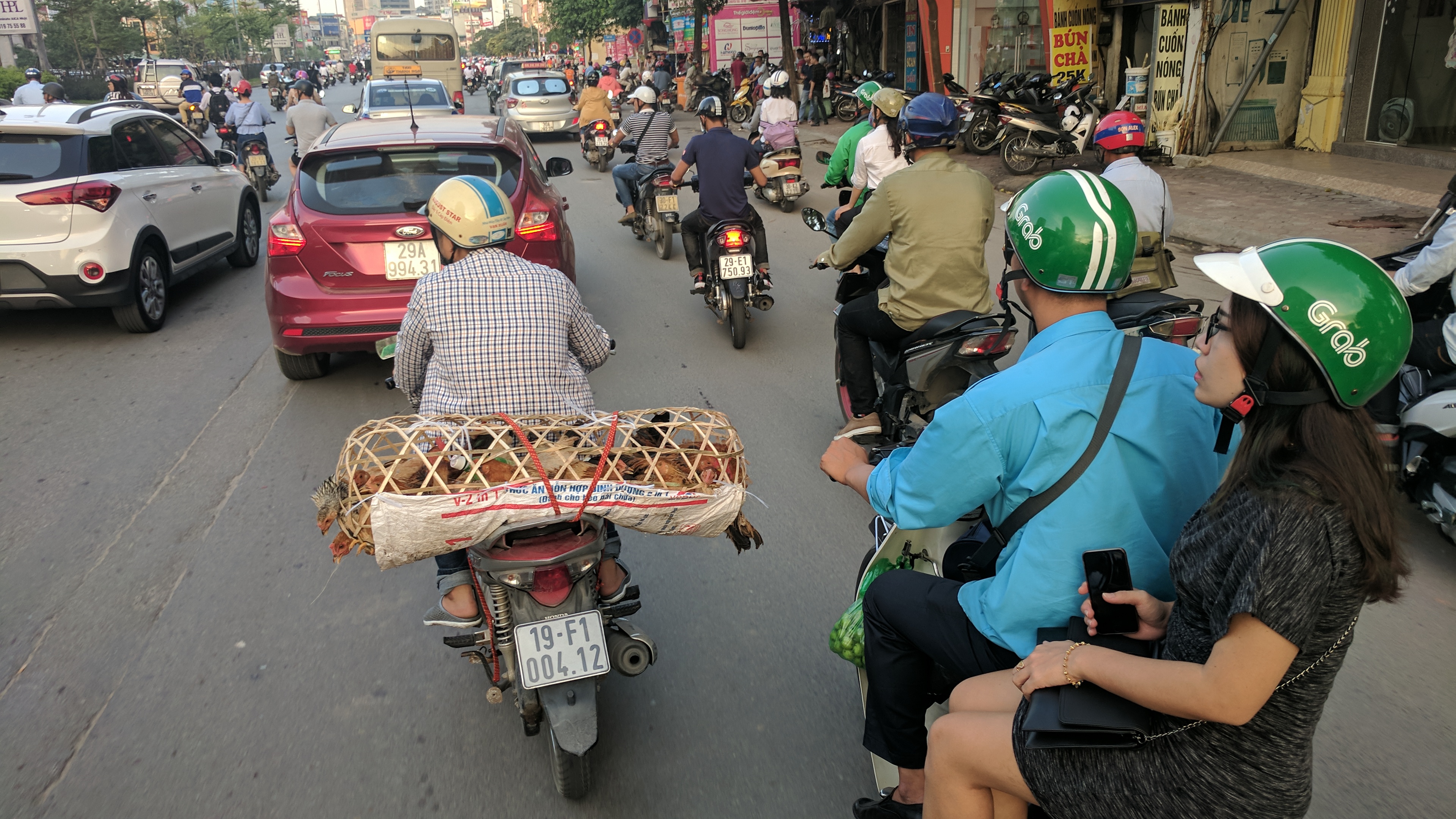
That would be a basket of chickens on the back of a motorbike. It’s hard to say how many felonies this guy will have committed if he tried the same things in America. Buying and transporting would, of course, have to be regulated and licensed. Whether he plans on preparing the chickens as food or having them produce eggs, he would have to get permission from the American government first.
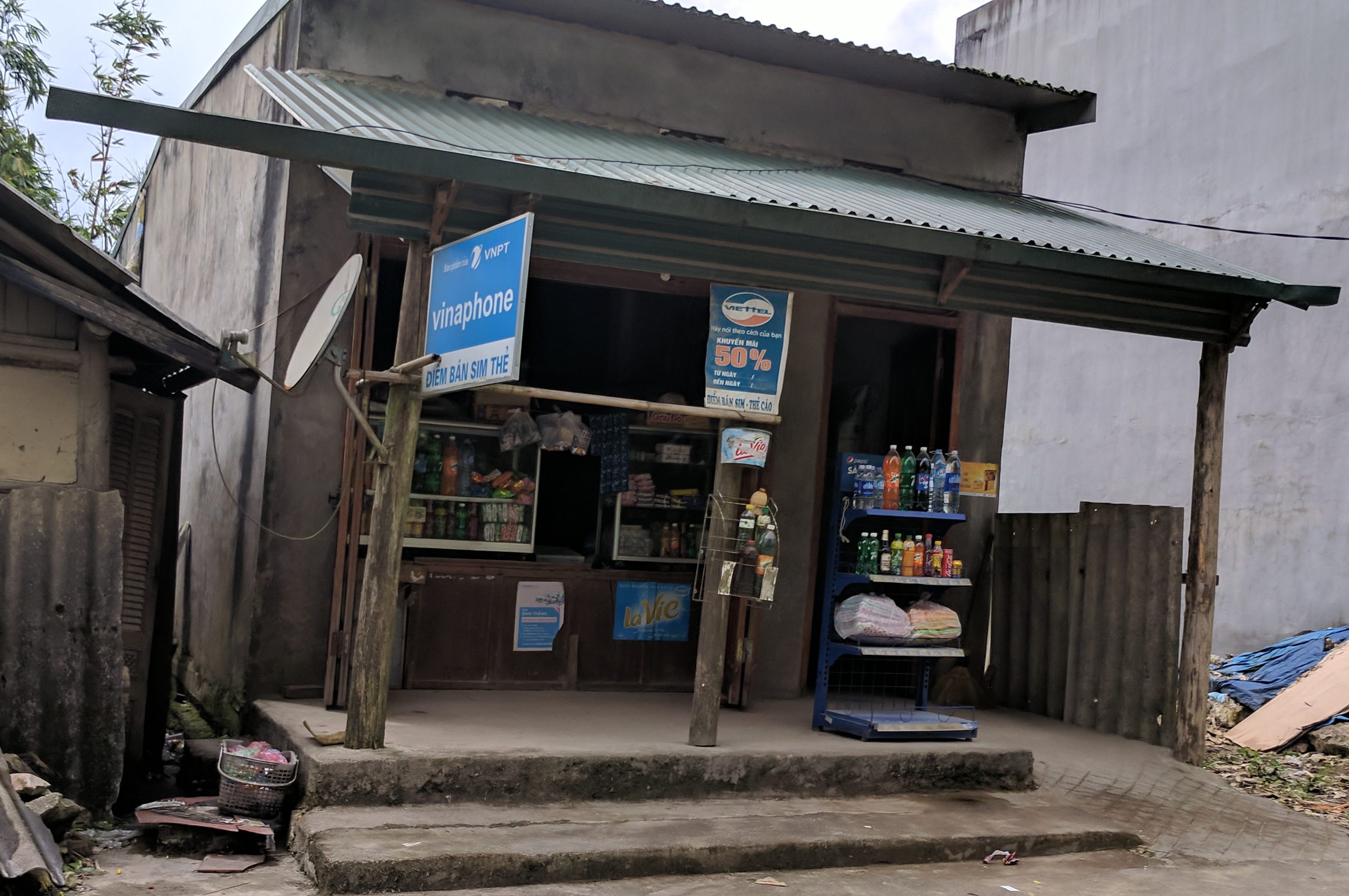
This is a gas station in Sapa, Vietnam. Are you looking for the gas pump? It’s not there, but the gas is. Look below the Viettel sign. Former water and soda bottles have been filled with gasoline. I saw this throughout the Sapa area. Even though there are plenty of normal gas stations in the much bigger cities of Hanoi and Danang, I saw it there as well.
In America, you’d probably be committing a few dozen felonies if you sold gasoline like this.
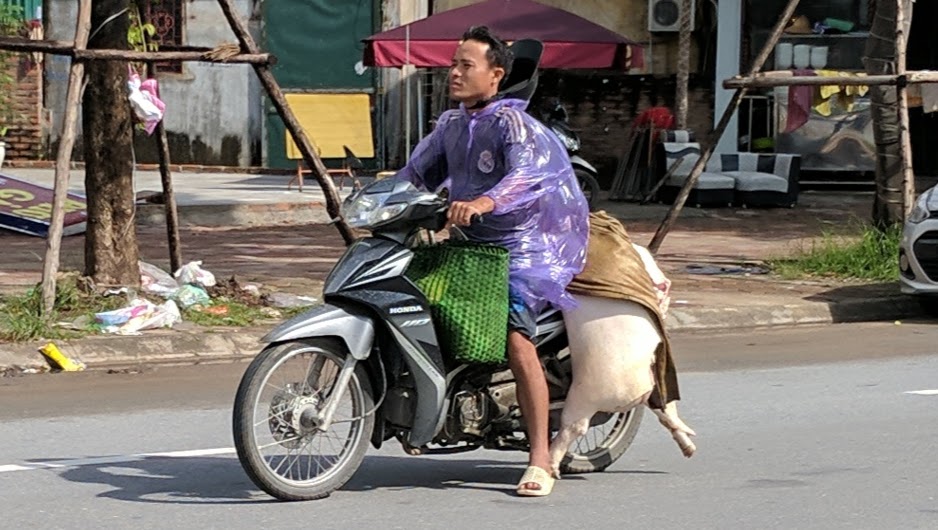
Yes, you’re seeing that correctly. That’d be a man driving a motorbike with a dead pig on the back.
At this point, do I really have to tell you how quickly a cop in America would pull this guy over? Meanwhile, in Vietnam, this guy is perfectly confident that he’ll safely and peacefully make it to his destination with his prized pig. No Vietnamese cop will prevent him from doing so.
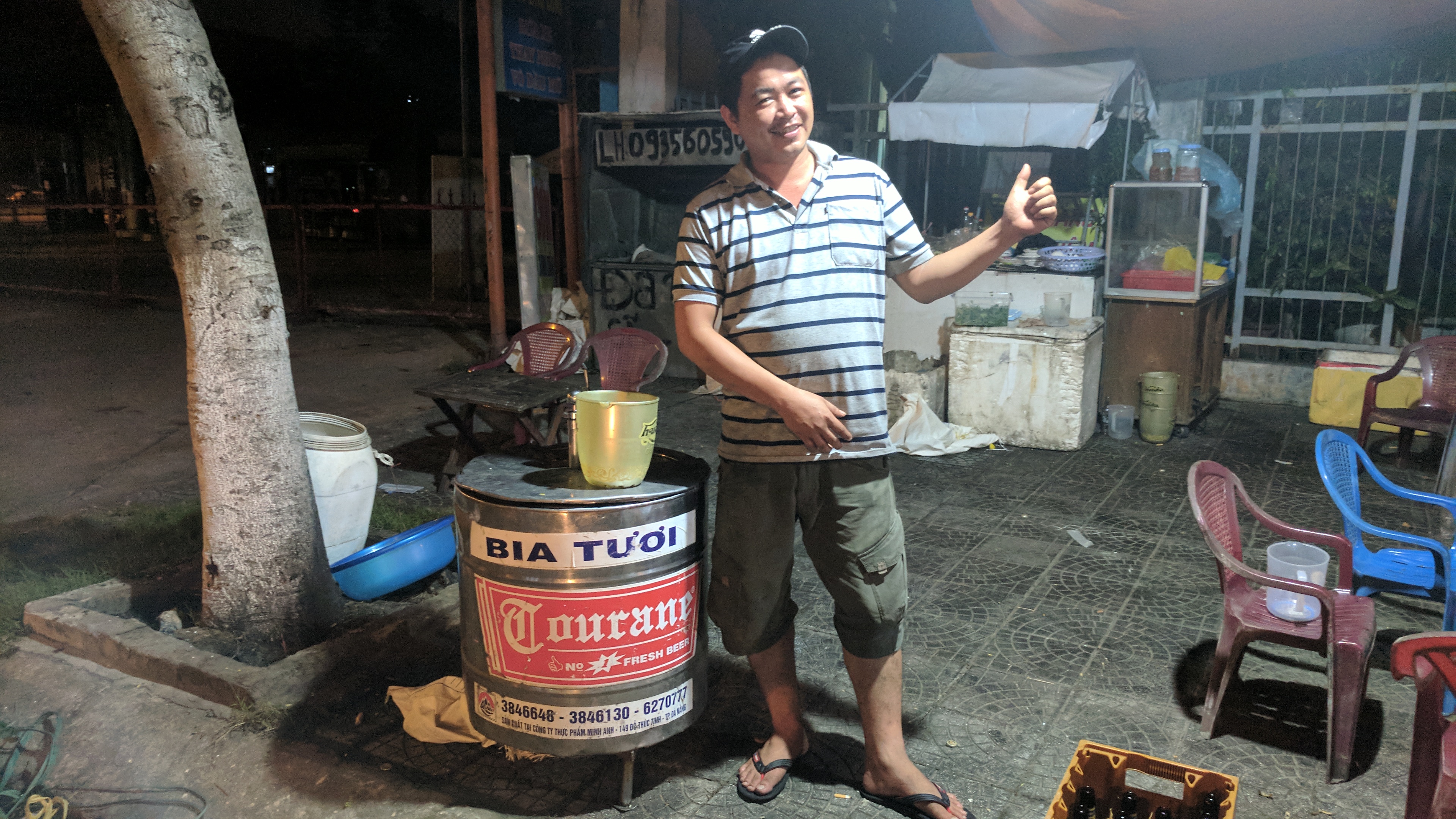
This guy and his friends gave me some of my fondest memories in Vietnam.
Unfortunately, the American government would throw him in jail if he attempted to open his business in the “Land of the Free”. Every night, on the sidewalk, he and his wife set up chairs, tables, cabinets, a grill, a keg of beer, and more. At the end of the night, his wife comes back and helps him sweep the sidewalk and wash the dishes in the street. In Vietnam, it’s a humbling story of a hard working family. In America, they’d both be unemployed, and perhaps in jail.

What happens when markets are freed? You get two liters of beer for 20,000 Dong ($0.88). It doesn’t taste as good as a New England microbrew, but then again, nothing does! However, it’s far better than a Budweiser, Miller, or any other mainstream, domestic American beer.
Not pictured above
Don’t let some of the pictures above fool you into thinking Vietnam isn’t developed in other areas. They have a lot of things Americans are used to. Grocery stores the size of Costco, Air BnB, Starbucks, KFC, the newest smartphones, Uber, and more are all a part of the Vietnamese economy.
Until the 1930’s, most Americans recognized that when governments allow innovation and commerce to happen, economies thrive. This understanding of basic economics lead to the US rising out of extreme poverty related to today’s America.
Capitalism for the win
In the case of Vietnam, millions of people have been lifted out of extreme poverty at a much more remarkably rapid rate. According to World Bank statistics: “In 1993, over half of the population lived on less than $1.90-a-day. Today, [in 2017,] the rate of such extreme poverty has fallen to 3 percent.”
Even a once ultra-left wing activist, U2’s Bono, now understands that:
“Commerce – entrepreneurial capitalism – takes more people out of poverty than aid. Of course, we know that.”
Why did they tell us the Vietnam War was necessary?
In my heart of hearts, I believe we can’t leave this economic comparison without mentioning the Vietnam War – or as the Vietnamese call it, the American War.
The United States government told the world they had to murder Vietnamese people in order to save the world from communism. Meanwhile, as mentioned above, that same US government was busy implementing Marx’s dreams back at home.
In the end, as many as 3.8 million people died from the Vietnam War.
If you flip that entire story on its head, Americans should be thankful that the Vietnamese government haven’t subscribed to the theology of Lyndon Baines Johnson-style politicians. In which case, they’d work with other governments to bomb and terrorize Americans in an effort to rid the United States of communism and make their markets as free as Vietnam’s.

